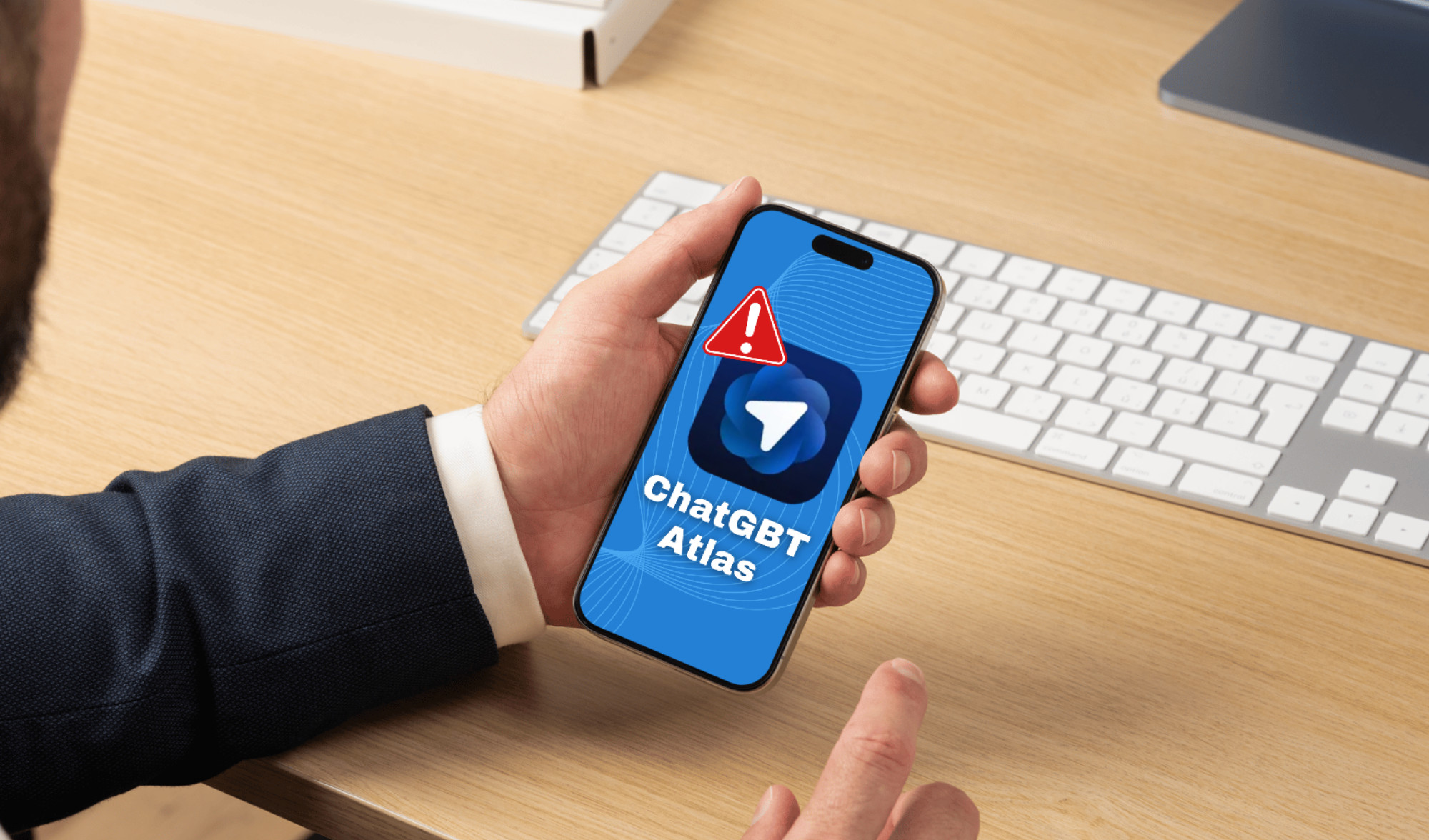Social media impersonation is rampant, costing Florida businesses millions in lost trust & revenue. Learn to spot, prevent, and respond to protect your brand online in the Sunshine State.
What Exactly is Social Media Impersonation?
In the vibrant, interconnected world of Florida’s social media landscape, where businesses connect with customers and communities, a deceptive threat lurks: social media impersonation. This isn’t just about someone pretending to be your friend for a prank; it’s a calculated act of deception where individuals or entities create fake profiles or pages designed to mimic a real person or, more dangerously for businesses, an established brand.
Social media impersonation broadly falls into two categories:
- Personal Impersonation: This occurs when someone creates a fake profile using another individual’s name, photos, or personal information. The intent can range from harassment and defamation to identity theft and financial fraud. Victims often include celebrities, public figures, or even ordinary Floridians whose identities are stolen for malicious purposes.
- Brand Impersonation: This is where the stakes are highest for Florida businesses. Impersonators create fake social media pages or profiles that closely resemble a legitimate company’s official presence. They often use your brand logo, name (with slight alterations), imagery, and even mimic your communication style. Their goals are diverse and destructive:
- Scams and Fraud: Luring your Florida customers into phishing schemes, fake promotions, or fraudulent transactions.
- Reputational Damage: Spreading misinformation, posting inappropriate content, or engaging in hostile interactions that tarnish your brand’s image within the Florida market.
- Customer Service Hijack: Intercepting customer queries, complaints, or support requests, leading to frustration and eroded trust among your local clientele.
- Intellectual Property Infringement: Selling counterfeit goods or services under your brand’s perceived authority, potentially impacting your market share in Florida.
The sophisticated nature of these attacks means they often go unnoticed until significant damage has been done. Understanding what constitutes impersonation is the crucial first step in protecting your Florida brand in the digital realm.
The Alarming Rise of Impersonation Scams: Key Statistics for Florida Businesses
Social media impersonation is not a niche problem; it’s a burgeoning cybercrime epidemic with severe financial and reputational consequences for individuals and businesses across Florida. The statistics paint a stark picture of a threat that is growing in scale and sophistication.
Consider these alarming figures, with a focus on Florida:
- Florida’s Position in Cybercrime: According to the FBI’s Internet Crime Complaint Center (IC3) Report for 2024, Florida ranked among the top 3 states nationally for the number of cybercrime victims and total reported losses. In 2024, Florida alone accounted for 52,191 cybercrime complaints, resulting in over $1.072 billion in reported losses. Impersonation scams contribute significantly to these figures.
- Business Email Compromise (BEC) Prevalence: A staggering 64% of businesses reported facing BEC attacks in 2024 (Comcast Business Cybersecurity Threat Report, 2024). While not exclusively social media-based, BEC attacks frequently leverage social engineering tactics, including impersonation, to trick employees into making fraudulent payments or revealing sensitive information. Florida businesses are equally susceptible.
- Phishing & Social Engineering Dominance: The Verizon Data Breach Investigations Report (DBIR) 2022 (the most recent widely cited source for this specific stat) reveals that 36% of all data breaches involved phishing and social engineering tactics. Impersonation is a core component of most successful phishing campaigns, making it a direct pipeline to data compromise for Florida companies.
- The Cost of a Data Breach in Florida: For small businesses in Florida, the average cost of a data breach can range from $120,000 to $1.24 million, depending on the severity (Verizon DBIR 2024 data, referenced by BigID). These costs include investigation, recovery, legal fees, and reputational damage – all directly exacerbated by impersonation.
- AI’s Role in Sophistication: The GIREM Report (June 2025) noted that 82.6% of phishing campaigns in 2024 used AI-generated content, making impersonation attempts incredibly convincing and harder to detect. This trend affects Florida businesses just as profoundly.
These statistics underscore a clear message: social media impersonation is a persistent and escalating threat for Florida businesses. Ignoring it is no longer an option for any company with an online presence in the Sunshine State. Proactive defense and rapid response are paramount.
How Social Media Impersonation Harms Your Florida Business
The repercussions of social media impersonation extend far beyond a mere annoyance. For businesses operating in Florida, these deceptive acts can inflict profound and lasting damage across multiple facets of your operations, from your local customer base to your statewide reputation. The impact can be financial, reputational, legal, and even human.
Here’s how social media impersonation harms your Florida business:
- Financial Loss & Fraud:
- Direct Scams: Impersonators use your Florida brand’s credibility to trick customers into fake promotions, investments, or phishing schemes, leading to direct financial losses for your customers, which inevitably reflects poorly on your brand. This can include targeted scams during Florida’s peak tourist seasons or local events.
- Revenue Diversion: Fake accounts might divert traffic from potential customers in Miami, Orlando, or Tampa to counterfeit product sites or competing services, stealing potential sales from your legitimate channels.
- Investigation Costs: The time and resources spent by your internal teams or external cybersecurity experts in Florida investigating and mitigating an impersonation attack can be substantial, pulling focus from core business operations.
- Severe Reputational Damage:
- Eroded Trust: When customers across Florida fall victim to scams perpetrated by fake accounts mimicking your brand, their trust in your genuine social media presence and ultimately, your company, is severely damaged. Regaining this trust is a long and arduous process, particularly in a state known for its strong community ties.
- Public Backlash: Negative interactions by impersonators, or the failure of your brand to protect its customers, can lead to widespread public condemnation and negative media coverage within Florida and beyond.
- Brand Devaluation: A tarnished reputation directly impacts brand value, making it harder to attract new customers (e.g., tourists, new residents), retain existing ones, and even recruit top talent in Florida’s competitive market.
- Legal & Compliance Risks:
- Intellectual Property Infringement: The unauthorized use of your trademarks, logos, and copyrighted content by impersonators constitutes intellectual property infringement, potentially requiring costly legal action under U.S. and Florida state laws.
- Consumer Protection Violations: If Florida customers are defrauded, your business might face legal action or regulatory scrutiny from the Florida Attorney General’s Office or federal agencies for perceived negligence in protecting your online presence.
- Data Privacy Breaches: If impersonators manage to trick Florida users into revealing personal data, your business could be implicated in a data breach. While Florida doesn’t have a broad consumer privacy law like California’s CCPA for all businesses, the Florida Information Protection Act (FIPA) mandates strict data security and breach notification requirements. Violations can lead to significant penalties ($500,000 civil penalties for delayed notification) and further reputational damage. The Florida Digital Bill of Rights (FDBR), though primarily targeting large tech companies, indicates a growing focus on data privacy that could impact more businesses over time.
- Operational Disruption & Resource Drain:
- Overwhelmed Support Teams: Your Florida-based customer service and social media teams can be inundated with queries and complaints related to fake accounts, diverting resources from legitimate customer engagement.
- Marketing Ineffectiveness: Your authentic marketing campaigns, designed for the Florida market, become less effective when customers are wary of distinguishing real from fake.
- Employee Morale: Employees, particularly those in Florida operations, can become demoralized by the constant need to fight off impersonators and the negative perception it creates for the brand they work for.
The cumulative effect of these harms underscores why addressing social media impersonation isn’t just good practice; it’s a fundamental necessity for business survival and growth in Florida’s dynamic digital landscape.
Spotting a Fake: Key Indicators of Social Media Impersonators
The first line of defense against social media impersonation is vigilance. While impersonators are becoming increasingly sophisticated, there are often tell-tale signs that can help you and your Florida customers identify a fraudulent account or page. Educating your audience on these indicators is a crucial step in proactive brand protection.
Here’s a comprehensive guide to spotting a fake social media account:
By familiarizing yourself and your team with these warning signs, you can significantly enhance your ability to detect and combat social media impersonators, protecting your Florida brand and its valued customers.
Proactive Measures: Preventing Impersonation Before It Happens
While rapid response is crucial, the most effective strategy against social media impersonation is proactive prevention. Florida businesses must implement robust measures to deter potential impersonators and make it harder for them to succeed. A strong preventative stance saves you time, money, and reputational damage in the long run.
Here are essential proactive measures for Florida businesses:
- Secure and Verify All Official Accounts:
- Claim All Relevant Handles: Proactively register your brand’s name and variations across all major social media platforms, even those you don’t actively use. This prevents others from claiming them, especially crucial in a state with diverse demographics and multiple popular platforms.
- Obtain Verification Badges: Apply for and secure official verification badges (blue checkmarks) on platforms like Facebook, Instagram, and X (formerly Twitter). This visibly signals authenticity to your Florida audience.
- Strong Passwords & 2FA: Implement strong, unique passwords for all your social media accounts and enforce two-factor authentication (2FA) for every team member with access.
- Consistent Brand Guidelines:
- Standardized Naming: Use a consistent brand name and handle across all platforms.
- Official Logos & Imagery: Ensure all your official profiles use high-resolution, consistent brand logos and imagery. This consistency helps Floridians quickly recognize your authentic presence.
- Defined Tone of Voice: Maintain a consistent brand voice and communication style. This makes it easier for users to identify imposter accounts with off-brand messaging.
- Educate Your Florida Audience & Employees:
- Public Awareness Campaigns: Regularly inform your Florida customers about how to identify your official social media channels and warn them about common impersonation tactics. Post “how to spot a fake” guides on your website and social media, perhaps even tailoring examples to common Florida-specific scams.
- Internal Training: Train your employees, especially customer service and marketing teams in Florida, on how to spot and report impersonators. They are often the first to notice suspicious activity.
- Clear Communication Channels: Direct customers to your official support channels (e.g., “Always visit our official website for support, not a DM”).
- Leverage Monitoring Tools:
- Brand Monitoring Software: Invest in tools that actively monitor social media platforms for mentions of your brand name, logo, or key phrases, including slight misspellings. These tools can often detect new, suspicious accounts attempting to impersonate you across various Florida-centric communities.
- Trademark & Copyright Monitoring: Utilize services that track online use of your intellectual property to identify unauthorized use by potential impersonators.
- Develop a Florida-Specific Social Media Crisis Plan:
- Pre-defined Response Protocols: Have clear, documented procedures in place for how to respond if an impersonation account is discovered, including who to contact internally and externally (e.g., local Florida law enforcement Cyber Crimes Units, state agencies).
- Designated Spokesperson: Identify who is authorized to speak on behalf of the company in the event of an impersonation incident, ensuring consistent messaging to your Florida customer base.
By integrating these proactive measures into your digital strategy, your Florida business can significantly reduce the risk of falling victim to social media impersonation and fortify its online integrity.
What to Do When Your Business is Impersonated: A Step-by-Step Guide for Florida Businesses
Even with the most robust proactive measures, social media impersonation can still occur. When it does, a swift, decisive, and well-coordinated response is critical to minimize damage and restore trust for your Florida business and its customers. Panic is not an option; a clear action plan is your best defense.
Here’s a step-by-step guide for Florida businesses facing social media impersonation:
- Verify the Impersonation:
- Do Not Engage Directly (Yet): Resist the urge to confront the impersonator publicly immediately.
- Gather Evidence: Take comprehensive screenshots (including timestamps, account names, URLs, and specific posts) of the fake profile, page, and any fraudulent activity. Record the URL of the impersonating account. This evidence is crucial for reporting to platforms and potentially to Florida law enforcement.
- Confirm Legitimacy: Double-check your own official accounts to ensure no internal compromise.
- Report to the Social Media Platform Immediately:
- Utilize Platform-Specific Reporting Tools: Every major social media platform has a dedicated process for reporting impersonation. This is your primary course of action. Be thorough and provide all gathered evidence. (Refer to the previous list of platform-specific instructions for Facebook, Instagram, LinkedIn, X).
- Follow Up: While responses can vary, monitor the reported account. If it’s not removed within a reasonable timeframe, consider escalating your report or seeking legal counsel for platform intervention.
- Communicate with Your Florida Audience (Carefully):
- Official Announcement: Once the fake account is reported, issue a clear, concise statement on your official social media channels and website. Tailor your message to Florida consumers, addressing their potential concerns.
- Guidance: Inform your customers about the impersonation, provide clear instructions on how to identify your legitimate accounts, and advise them not to interact with the fake one.
- Reassurance: Reassure customers that you are taking the matter seriously and are working to resolve it, emphasizing your commitment to their safety and trust in Florida.
- Engage Florida Law Enforcement & Legal Counsel:
- File a Complaint with the FBI’s Internet Crime Complaint Center (IC3): This is a crucial step for any cybercrime, regardless of location. The IC3 shares complaints with federal, state, and local law enforcement.
- Contact Local Florida Law Enforcement: Depending on the severity and nature of the impersonation, consider filing a report with your local police department or the Florida Department of Law Enforcement (FDLE) Cybercrime Unit. They can investigate state-level crimes.
- Consult a Florida Cybercrime Lawyer: Given Florida’s specific laws (Florida Information Protection Act, Cyberstalking laws, consumer protection statutes), consult with a lawyer specializing in cybercrime and intellectual property in Florida. They can advise on sending legal notices, pursuing civil action for damages, or navigating any potential criminal charges against the impersonator under Florida Statutes.
- Monitor for Recurrence:
- Impersonators may reappear. Continue to monitor actively for new fake accounts mimicking your brand, particularly in key Florida markets.
By having this action plan ready, your Florida business can react swiftly and effectively to protect its brand and customers from the damaging effects of social media impersonation.
Rebuilding Trust: Post-Impersonation Reputation Management in Florida
An impersonation attack, even if swiftly handled, can leave a dent in your Florida brand’s most valuable asset: trust. Rebuilding this trust with your customers and stakeholders across the Sunshine State is a critical phase that requires strategic and consistent effort. It’s not enough to simply remove the fake account; you must actively work to restore confidence.
Here’s how to approach post-impersonation reputation management for your Florida business:
- Transparent & Honest Communication:
- Follow-Up Statement: Once the impersonating account is removed (or steps are taken), issue a follow-up statement. Acknowledge the incident, explain what happened (without revealing sensitive internal details), and reiterate the steps you took to resolve it. Tailor this to resonate with Florida consumers.
- Reassure Customers: Emphasize the measures you have in place to prevent future occurrences and protect their data. Highlight your adherence to Florida’s data privacy standards like the Florida Information Protection Act (FIPA).
- Open Q&A: Consider hosting a live social media Q&A session or providing a dedicated email address for Florida customers to address their concerns directly and transparently.
- Reinforce Your Official Florida Presence:
- Highlight Verification: Prominently display your verification badges on all social media profiles.
- Consistent Branding: Ensure all your online assets (website, social media, emails) are consistent with your official branding, making it easy for customers in Florida to identify authenticity.
- Educate Continuously: Continue to educate your Florida audience on how to spot fake accounts and the importance of only interacting with your official channels. Make this a regular part of your content strategy, perhaps even with Florida-specific examples.
- Proactive Florida Customer Engagement:
- Enhanced Customer Service: Be extra responsive to customer inquiries and complaints. Show empathy and efficiency. For Florida businesses, this might mean having bilingual support or addressing local concerns.
- Build Community: Foster a strong, engaged online community around your genuine social media channels, tailored to your Florida customer base. The more active and authentic your community is, the harder it is for impersonators to blend in.
- Positive Storytelling: Counter any negative sentiment by proactively sharing positive stories, customer testimonials from Floridians, and showcasing your brand values and commitment to security within the state.
- Monitor Florida Brand Sentiment:
- Social Listening Tools: Use advanced social listening tools to track mentions of your brand across social media, Florida-specific forums, and local news sites. Pay close attention to keywords related to trust, security, and fraud in the context of Florida.
- Reputation Surveys: Consider conducting small surveys among your Florida customer base to gauge sentiment and trust levels post-incident.
- Review and Strengthen Internal Protocols:
- Post-Mortem Analysis: Conduct an internal review of the incident: How was it detected? What was the response time? What could be improved?
- Update Security Measures: Based on the review, update your internal security policies, employee training, and social media management protocols, ensuring they align with Florida’s regulatory environment.
Rebuilding trust is a marathon, not a sprint. Through consistent transparency, proactive communication, and an unwavering commitment to customer safety in Florida, your brand can not only recover from an impersonation attack but emerge stronger and more resilient.
Legal Recourse for Social Media Impersonation in Florida
For businesses operating in Florida, the legal landscape offers specific provisions to combat social media impersonation. Understanding these laws is crucial for pursuing justice and protecting your brand from fraudulent online activities. Social media impersonation is recognized as a serious offense under Florida law, carrying both civil and criminal implications.
Here’s an overview of the key legal provisions and steps for recourse in Florida:
- Florida Statutes Related to Cybercrime:
- Florida Statute § 784.048: Cyberstalking: This statute broadly defines cyberstalking as engaging in a course of conduct to communicate words, images, or language by electronic means to a specific person, causing substantial emotional distress and serving no legitimate purpose. Impersonating someone online is explicitly listed as an activity that can give rise to cyberstalking charges in Florida. Depending on the specific allegations, this can range from a first-degree misdemeanor (up to one year in jail, $1,000 fine) to a third-degree felony (up to five years in prison, $5,000 fine) if credible threats are involved or the victim is a minor.
- Implication for Businesses: While often applied to individuals, if an impersonator’s actions against your brand cause substantial emotional distress to your employees or executives, or if their actions involve threats against your business, this statute could be relevant.
- Florida Statutes Chapter 817: Frauds: This chapter covers various fraud-related offenses. While not directly naming “social media impersonation,” sections related to identity theft (e.g., using another’s identification without consent to defraud) or false pretenses could be applicable if the impersonation leads to financial deception.
- Florida Statutes Chapter 815: Computer-Related Crimes: This chapter addresses crimes involving computer systems. While it doesn’t have a direct “impersonation” section, if the impersonator gains unauthorized access to your company’s social media accounts (even through phishing) or disrupts your online presence, these statutes might apply.
- Florida Information Protection Act of 2014 (FIPA): While not a law against impersonation directly, FIPA requires businesses to implement reasonable security measures to protect the personal information of Florida residents. If an impersonation leads to a data breach of Florida consumer data, FIPA mandates strict 30-day notification requirements to affected individuals and potentially the Florida Department of Legal Affairs. Non-compliance can result in significant civil penalties.
- Florida Digital Bill of Rights (FDBR): Though primarily aimed at large tech companies (>$1 billion global gross revenue), FDBR highlights Florida’s growing focus on data privacy and consumer rights, reinforcing the need for businesses to protect consumer data and be transparent.
- Florida Statute § 784.048: Cyberstalking: This statute broadly defines cyberstalking as engaging in a course of conduct to communicate words, images, or language by electronic means to a specific person, causing substantial emotional distress and serving no legitimate purpose. Impersonating someone online is explicitly listed as an activity that can give rise to cyberstalking charges in Florida. Depending on the specific allegations, this can range from a first-degree misdemeanor (up to one year in jail, $1,000 fine) to a third-degree felony (up to five years in prison, $5,000 fine) if credible threats are involved or the victim is a minor.
- Federal Laws:
- Lanham Act (Federal Trademark Law): If an impersonator uses your registered trademarks (logo, brand name) to deceive consumers, you have strong recourse under federal trademark law to pursue civil action for infringement and unfair competition.
- CAN-SPAM Act: While primarily for email, elements regarding deceptive headers or misleading information could apply if the impersonation extends to email communications.
Steps for Legal Recourse in Florida:
- Gather Comprehensive Evidence: Collect all screenshots, URLs, communication logs, and any other relevant digital evidence of the impersonation. This is critical for any legal action.
- Report to Federal Agencies:
- FBI Internet Crime Complaint Center (IC3): File a detailed report at IC3.gov. The IC3 is a partnership between the FBI and the National White Collar Crime Center and is the central hub for reporting cybercrimes in the U.S.
- Federal Trade Commission (FTC): Report identity theft and fraud at ReportFraud.ftc.gov.
- Contact Florida Law Enforcement:
- Florida Department of Law Enforcement (FDLE): For serious cybercrimes, the FDLE Cybercrime Unit may become involved.
- Local Police Department/Sheriff’s Office: File a police report with your local law enforcement agency.
- Florida Attorney General’s Office: You can file consumer complaints regarding internet fraud or deceptive practices via their website (myfloridalegal.com). They also operate a Fraud Hotline.
- Send a Cease and Desist Letter: Your lawyer can send a formal cease and desist letter to the impersonator (if their identity is known) demanding they stop the infringing activity.
- Civil Suit for Damages: If the impersonation has caused significant financial or reputational harm to your Florida business, you can file a civil lawsuit for compensation and to obtain an injunction preventing further impersonation.
- Consult a Florida Cybercrime Lawyer: Given the complexities of state and federal cyber law, it is highly advisable to consult with a lawyer specializing in cybercrime, intellectual property, and business law in Florida. They can guide you through the legal process, draft necessary documents, and represent your interests.
Protecting your brand in Florida’s digital landscape requires not only robust technical measures but also a clear understanding of the legal avenues available to combat impersonation and its severe consequences.
Giaspace’s Role in Protecting Your Florida Brand from Online Impersonators
In today’s interconnected digital world, proactive brand protection against online impersonators is no longer an option for Florida businesses – it’s a necessity. At Giaspace, we understand the intricate threats posed by social media impersonation and offer comprehensive solutions specifically designed to safeguard your business’s online reputation and assets right here in the Sunshine State.
We act as your dedicated shield against online deception, offering a multi-faceted approach to combat impersonation specifically tailored for Florida companies:
- Proactive Florida Brand Monitoring & Detection:
- 24/7 Vigilance: We deploy advanced tools and expert analysts to continuously monitor social media platforms, local forums, business directories, and the broader web for any instances of your Florida brand being impersonated. This includes monitoring variations of your brand name, logo, and key products, even those specific to the Florida market.
- AI-Powered Detection: Our systems leverage artificial intelligence and machine learning to rapidly identify suspicious accounts, phishing attempts, and unauthorized use of your intellectual property, often before they gain traction within the Florida online community.
- Early Warning System: We provide real-time alerts whenever a potential impersonation threat is detected, giving your Florida business the earliest possible opportunity to respond.
- Rapid Response & Takedown Services:
- Platform Liaison: We streamline the reporting process by acting as your direct liaison with social media platforms (Facebook, Instagram, LinkedIn, X, etc.) and other online service providers. Our expertise in platform policies ensures that reports are filed correctly and effectively for maximum impact.
- Expedited Removal: We work relentlessly to accelerate the takedown of fraudulent profiles, pages, and content that impersonate your Florida brand, minimizing their potential to cause harm to your local customer base.
- Evidence Collection & Documentation: We meticulously collect and document all necessary evidence (screenshots, URLs, metadata) to support takedown requests and any potential legal action within Florida.
- Strategic Legal & Advisory Support in Florida:
- Florida Legal Guidance: With our deep understanding of Florida cyber laws (e.g., Cyberstalking statutes, FIPA, FDBR considerations), we provide strategic advice on the legal recourse available to your Florida business, including assisting with the process of filing complaints with the IC3, local law enforcement, or the Florida Attorney General’s Office when necessary.
- Mitigation Strategies: We help you develop and implement robust internal protocols for managing your social media presence and responding to threats, reducing future vulnerabilities specific to the Florida business environment.
- Reputation Recovery: Beyond takedowns, we advise on strategies to rebuild trust and restore your Florida brand’s reputation post-impersonation, including public communication tailored for the local market and community engagement initiatives.
- Employee & Customer Education:
- Tailored Florida Training: We offer customized training sessions for your employees in Florida on identifying and reporting suspicious activity, making them an active part of your defense.
- Customer Awareness Campaigns: We help you craft clear, actionable guidelines for your Florida customers on how to identify your official channels and avoid impersonation scams, leveraging Florida-specific examples where appropriate.
With Giaspace by your side, your Florida business isn’t just reacting to threats; you’re proactively building a resilient online presence. Let us protect your brand’s integrity in the Sunshine State, so you can focus on what you do best: serving your Florida customers and growing your business.
Staying Ahead of the Impersonators: Continuous Vigilance for Florida Businesses
The digital landscape is a constantly evolving battleground, and Florida is no exception. Just as technology advances, so do the tactics of social media impersonators. Therefore, protecting your Florida business from these threats is not a one-time fix but an ongoing commitment to continuous vigilance. The moment you relax your guard, you open the door for new attacks that could specifically target your local operations or customers.
Here’s why continuous vigilance is paramount for Florida businesses and what it entails:
- Evolving Tactics, Florida Impact: Impersonators constantly refine their methods. What worked yesterday might be detected today, leading them to innovate. This includes leveraging new platforms popular in Florida, employing AI for more convincing fake content (e.g., impersonating local events or businesses), and devising novel social engineering schemes that exploit regional trust.
- New Platform Risks: As new social media platforms emerge or existing ones introduce new features, these can become fresh avenues for impersonation. Staying updated on platform developments and how they might be exploited in Florida’s diverse communities is key.
- Brand Growth & Increased Target Appeal in Florida: As your Florida business grows and gains more recognition (e.g., through local campaigns, tourism, or statewide expansion), it naturally becomes a more attractive target for impersonators. Increased visibility across Florida demands increased protection.
- Maintaining Trust in the Florida Market: Your Florida customers’ trust is fragile. A single, prolonged impersonation incident can erode years of careful brand building within your local community. Continuous vigilance ensures swift action, minimizing potential damage and preserving customer confidence.
- Legal and Regulatory Changes: Laws and regulations related to online fraud and data protection are continually evolving, including within Florida (e.g., potential future expansions of the FDBR, updates to FIPA). Staying informed ensures your protection strategies remain compliant and effective.
What Continuous Vigilance Looks Like for Your Florida Business:
- Regular Audits: Periodically audit your official social media accounts, intellectual property usage online, and even your employees’ public social media activity (within legal and ethical bounds) for any signs of compromise or unusual patterns relevant to your Florida operations.
- Stay Informed on Florida Cyber Trends: Keep abreast of the latest cybersecurity threats, social media trends, and new impersonation tactics by subscribing to Florida-specific industry alerts, reports from state agencies, and cybersecurity news.
- Adaptive Tools: Ensure your brand monitoring and protection tools are updated and adapt to new threats and platforms. Don’t rely on static, outdated solutions that might miss Florida-specific nuances.
- Refine Protocols: Regularly review and update your internal response plans based on new threats, lessons learned from any incidents, and evolving best practices, ensuring they align with Florida state guidelines and resources.
- Ongoing Education: Conduct recurring cybersecurity and social media awareness training for your Florida team. The human element remains the strongest and weakest link in security.
- Partner with Florida-Focused Experts: Work with cybersecurity and brand protection specialists like Giaspace who are dedicated to staying ahead of these threats, understand the Florida landscape, and can provide continuous monitoring and rapid response capabilities tailored to your needs in the state.
In the digital age, cybersecurity is not a destination but a journey. By embracing continuous vigilance, your Florida business can proactively manage its online presence, safeguard its reputation, and ensure it remains a trusted and authentic entity in the eyes of its customers across the Sunshine State.
Published: Jun 14, 2023







